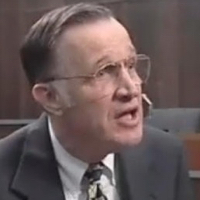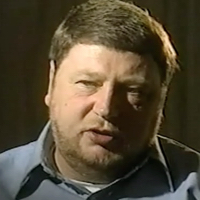Rascals case in brief
In the beginning, in 1989, more than 90 children at the Little Rascals Day Care Center in Edenton, North Carolina, accused a total of 20 adults with 429 instances of sexual abuse over a three-year period. It may have all begun with one parent’s complaint about punishment given her child.
Among the alleged perpetrators: the sheriff and mayor. But prosecutors would charge only Robin Byrum, Darlene Harris, Elizabeth “Betsy” Kelly, Robert “Bob” Kelly, Willard Scott Privott, Shelley Stone and Dawn Wilson – the Edenton 7.
Along with sodomy and beatings, allegations included a baby killed with a handgun, a child being hung upside down from a tree and being set on fire and countless other fantastic incidents involving spaceships, hot air balloons, pirate ships and trained sharks.
By the time prosecutors dropped the last charges in 1997, Little Rascals had become North Carolina’s longest and most costly criminal trial. Prosecutors kept defendants jailed in hopes at least one would turn against their supposed co-conspirators. Remarkably, none did. Another shameful record: Five defendants had to wait longer to face their accusers in court than anyone else in North Carolina history.
Between 1991 and 1997, Ofra Bikel produced three extraordinary episodes on the Little Rascals case for the PBS series “Frontline.” Although “Innocence Lost” did not deter prosecutors, it exposed their tactics and fostered nationwide skepticism and dismay.
With each passing year, the absurdity of the Little Rascals charges has become more obvious. But no admission of error has ever come from prosecutors, police, interviewers or parents. This site is devoted to the issues raised by this case.
On Facebook
Click for earlier Facebook posts archived on this site
Click to go to
Today’s random selection from the Little Rascals Day Care archives….
Click for earlier Facebook posts archived on this site
Click to go to
Today’s random selection from the Little Rascals Day Care archives….
Remembering when ‘sketchiest of evidence or none at all’ was plenty

Levine
Jan. 8, 2018
“Because [this movement] was about sex and children, hysteria was not far behind. Before long, an industry of feminist and Christian therapists and self-help writers were claiming that virtually every behavioral quirk or emotional trouble could be traced to sexual abuse, even if – especially if – the alleged victim did not remember it. ‘If you think you were abused and your life shows the symptoms, then you were,’ wrote poet Ellen Bass and journalist Laura Davis in their massive bestseller The Courage to Heal (1988). The symptom checklists in it and similar books include everything from arthritis to feeling ugly. Bass’s book launched a battery of unscientific ‘therapeutic’ and forensic interviewing techniques to extract false and ‘recovered’ memories of sexual depredation. …
“A new crusade marched under the banner ‘Believe the Children.’ With the sketchiest of evidence or none at all, child protective agencies removed kids from their parents. Credulous juries sent day-care workers to prison on charges of ‘satanic ritual abuse.’ Adults denounced their aging parents, guilty of nothing more than imperfect love, as sadistic rapists. It took only one accusation to ruin a person’s life. Bus drivers, babysitters, divorcing fathers, and boyfriends at the wrong end of a grudge lost jobs, families, and reputations with one accusation, one newspaper item. In its review of exonerations from 1989 to 2012, the National Registry of Exonerations reported that among convictions for crimes that never occurred, over half involved child sexual abuse: ‘Two-thirds of these cases were generated in a wave of child sexual abuse hysteria that swept the country three decades ago.”
– From “Will Feminism’s Past Mistakes Haunt #MeToo?” (Dec. 8) by Judith Levine in Boston Review
![]()
‘A good day for justice’ in Texas – why not in NC?

cbsnews.com
Charles Sebesta
Feb. 13, 2016
“The disciplinary board of the Texas State Bar on Monday affirmed the agency’s decision to disbar Charles Sebesta, the former prosecutor who oversaw the wrongful death sentence of Anthony Graves.
“Graves, who spent 18 years in prison, including 12 on death row, for a fiery multiple murder he did not commit… had asked the Bar to hold Sebesta accountable for withholding critical evidence of his innocence.
“ ‘The bar stepped in to say that’s not the way our criminal justice system should work,’ Graves said. ‘This is a good day for justice.’ ”
– From “State Bar board affirms disbarment of prosecutor who sent innocent man to death row” by Brandi Grissom in the Dallas Morning News (Feb. 8)
Legal scholar Jonathan Turley notes that “Sebesta’s conduct was shocking but remains a relatively rare example of prosecutors being held accountable in such cases of prosecutorial abuse.”
Although the Texas Bar displayed little eagerness to bring a prosecutor to justice – and disbarment is a petty consequence indeed for the enormity of Sebesta’s malfeasance – its response seems darn near heroic compared with the shameful vindictiveness we have come to expect from the North Carolina Bar.
![]()
Beware of jurors wearing deerstalker caps

pbs.org/wgbh/frontline
Dennis T. Ray
April 10, 2016
“(Daniel Green’s) Durham-based defense team says it has new evidence that challenges major parts of the prosecution’s case, while bolstering their request for a new trial. They claim that misleading testimony and misconduct by the prosecutor and jury helped send Green to prison for (the 1993 murder of James Jordan) he did not commit.
“The evidence outlined in court documents includes… a sworn statement from the jury forewoman who admits she did her own investigation of Jordan’s murder, which violated a judge’s order. Paula Locklear says that during the trial, she visited the South Carolina creekside where the body was found and developed her own theory on how the killing occurred. A Charlotte legal expert says her action amounts to a ‘tremendous problem’ for the original case and could get Green’s conviction overturned….”
– From “New questions raised in slaying case of Michael Jordan’s father” by Michael Gordon and Mark Washburn in the Charlotte Observer (April 9) (cached)
Sound familiar? It should! As a juror in Bob Kelly’s trial, Dennis T. Ray not only conducted his own “crime” scene surveys, but also shared a Cosmopolitan article about how to identify child molesters, relayed incriminating claims from a jailhouse snitch and even displayed a supposed “magic key” described by child witnesses.
Unfortunately, Judge Marsh McLelland didn’t consider Ray’s rogue behavior – or that of a second juror, who dramatically revealed during deliberations that he himself had been abused as a child – to be a “tremendous problem.”
In fact, McLelland found precious few reasons to take issue with the prosecution’s case.
![]()
Still waiting for that ‘huge mea culpa’
Sept. 6, 2013
“The day-care trials couldn’t have happened without the active participation of social workers and therapists. Police authorities relied on the therapists to interpret what the child witnesses were saying, to interview the children and to counsel them about their alleged experiences. One might suppose that the realization that:
- People have been sent to prison for years for crimes that never happened;
- Children had been abused, not by the accused, but by misguided therapists who implanted false memories;
would have created a huge mea culpa among the professionals involved. This hasn’t happened.
“Some have defended their actions, if not the results, on the basis that their hearts were in the right place. Some have excused themselves on the basis that nobody knew any better – that, by golly, nobody could have guessed that rewarding children for making accusations, and questioning them until they did make accusations, might just lead to false accusations.
“And they speak, in self-pitying tones, about the ‘backlash’ – the (presumably) undeserved and irrational criticism that is flung their way.”
– From “The ‘Ritual Abuse’ Panic” at Imaginary Crimes
Mum’s still the word from the prosecution therapists in the Little Rascals case, except for Judy Abbott’s resentful response to the “backlash.”











0 CommentsComment on Facebook